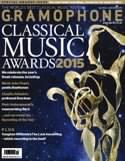Texte paru dans: / Appeared in: |
|
|
Outil de traduction (Très approximatif) |
|
|
Reviewer: Lindsay Kemp
Bernardo Pasquini (1637-1710) is a shadowy one all right. A contemporary in Rome of Corelli and Alessandro Scarlatti, he mixed in the same environment of high aristocratic patronage (he lived in the palace of Prince Borghese), joining them in a troika of composers deemed distinguished enough to be admitted to the Arcadian Academy. The keyboard man of the three, he was a widely renowned harpsichordist and teacher whose pupils included hopefuls from German and Italy, and it is almost certain that Handel and Domenico Scarlatti heard him play. Few today, however, will be familiar with his music; discs devoted to him are rare.
This new one perhaps shows why, for whereas the string concertos and sonatas of Corelli and the vocal works of Scarlatti still touch modern ears with their vigour and beauty, Pasquini’s suites, toccatas and variations sound rather more locked in the 17th century; and, compared to his keyboard predecessor Frescobaldi and successor Domenico Scarlatti, his music also lacks drama and weight. Yet it is still worth investigating, and Lydia Maria Blank, a harpsichordist whose previous recordings suggest a relish of tougher assignments than this (has anyone else ever devoted an entire disc to anonymous pieces?), certainly finds in it a vein of eloquence and a sureness of touch at the keyboard that make his contemporary reputation understandable.
Pasquini’s suites are melody-led, thoroughly Italianate (no French-style broken-chord counterpoint here) and over in a trice, his toccatas free-roaming and varied but likewise on the short side. More substantial, and more interesting, are his variation sets, particularly the 17-minute Variazoni d’Invenzione, which offers impressive bursts of finger-twisting virtuosity but ends in beguiling simplicity. Blank, playing on a surprisingly sweet-toned Italian-style harpsichord with crisp technique and subtle touch, does a good job of communicating the pleasing characteristics of this largely forgotten keyboard master.
|
|
|
|
|
|
Cliquez l'un ou l'autre
bouton pour découvrir bien d'autres critiques de CD |
|




